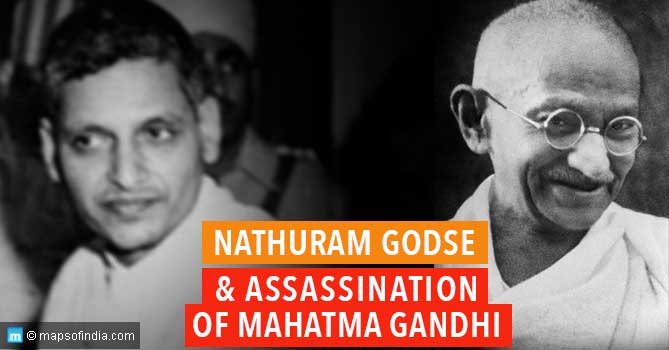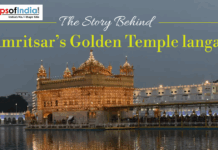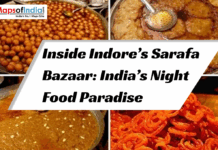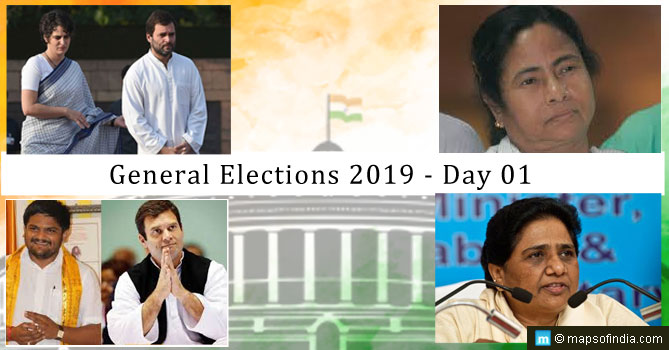
Martyrs’ Day: Death Anniversary of Mahatma Gandhi
India observes January 30 as Martyrs’ Day because on this day in 1948, the “Father of the Nation”, Mohandas Karamchand Gandhi, was assassinated by Nathuram Godse. People fondly called him “Bapu”. A renowned freedom fighter, Gandhi played a significant role in India’s independence and he had started the Civil Disobedience Movement, Satyagraha, Dandi March and Quit India Movement against the British. Men and women from all walks of life joined Gandhi’s movements in the freedom struggle.
Offers of floral tribute to Gandhiji
Every year on this day, which is also known as the Martyr’s Day; the Prime Minister, President, Vice President, Defence Minister, a large number of dignitaries and the three Service Chiefs gather at the Samadhi of Mahatma Gandhi at RajGhat to offer floral tribute to the Father of the Nation. The armed forces personnel blow bugles sounding the “Last Post” and the inter-services contingent reverse arms as a mark of respect. Two minutes of silence is observed throughout the country at 11 am to pay tribute to Mahatma Gandhi and other martyrs who lost their lives in the freedom struggle.
Who was Nathuram Godse?
Nathuram Vinayak Godse was a right-wing political activist who was an advocate by profession. He believed in Hindu Nationalism and he was a disciple of Savarkar. He assassinated Mahatma Gandhi by shooting him in the chest three times at point-blank range in New Delhi on January 30, 1948.
Nathuram was born in Pune to a Brahmin family. He dropped out of high school and got involved in the freedom struggle. Godse, along with his brothers, became a member of Rashtriya Swayamsevak Sangh (RSS). Later, he founded his organisation called “Hindu Rashtriya Dal” to support the cause of freedom. He was a member of both organisations.
Godse also launched his paper named “ Hindu Rashtra”. He was a prolific writer and often wrote his thoughts and articles and got them published in various newspapers. During his early life, he was a follower of Mahatma Gandhi. He supported the Civil Disobedience Movement launched by Gandhi and actively participated in it. Later, he turned against the philosophies of Gandhi and believed Gandhi repeatedly sabotaged the interests of the Hindus by using his “fasting to death” policy.
Why Nathuram Godse assassinated Mahatma Gandhi
A lot of theories, records of court proceedings, and articles talk about the assassination but the exact reason has not been determined. Much ink has been spilt to determine which political party was involved but there was no dice in this particular matter. He planned the assassination numerous times and at last, was able to assassinate Gandhi on January 30 before he was able to finish his evening prayers.
Godse believed Gandhi divided the Nation
Godse thought Gandhi was responsible for dividing the nation and wanted to become a favourite of both sides. Godse believed there could be no halfway house for Gandhi and being a passionate ardent lover of the country, he believed in taking some actions against this whole diplomatic thing taking place. So, he tried to assassinate Gandhi. Godse thought the current government was also unfairly favourable towards Muslims and it was entirely because of the policies of Gandhi.
Gandhi may be a saint, not a politician
He was disturbed when he came to know that despite the Kashmir trouble Jinnah consented to Gandhi’s Pakistan visit. He thought all this happened due to the extreme kindness of Gandhi towards the Muslims, and that he didn’t care much about the sentiments of the Hindus. Godse himself said, “ He may be a saint, but he’s not a politician”.
Godse was against Gandhi’s politics
Mahatma Gandhi urged the members of the Congress to reverse their decision of not paying Rs 55 crores to Pakistan despite giving their words. He even undertook “fasting to death” for this cause. Godse believed Gandhi was fasting for the Muslims, which later motivated him to take the dastardly action of the assassination of Gandhi.
Conclusion:
Following the assassination of Mahatma Gandhi, Godse was arrested and put on trial. His trial took place on November 8, 1949, at the Punjab High Court in Perfecter, Shimla. On November 15, 1949, he was hanged at Ambala Jail.





